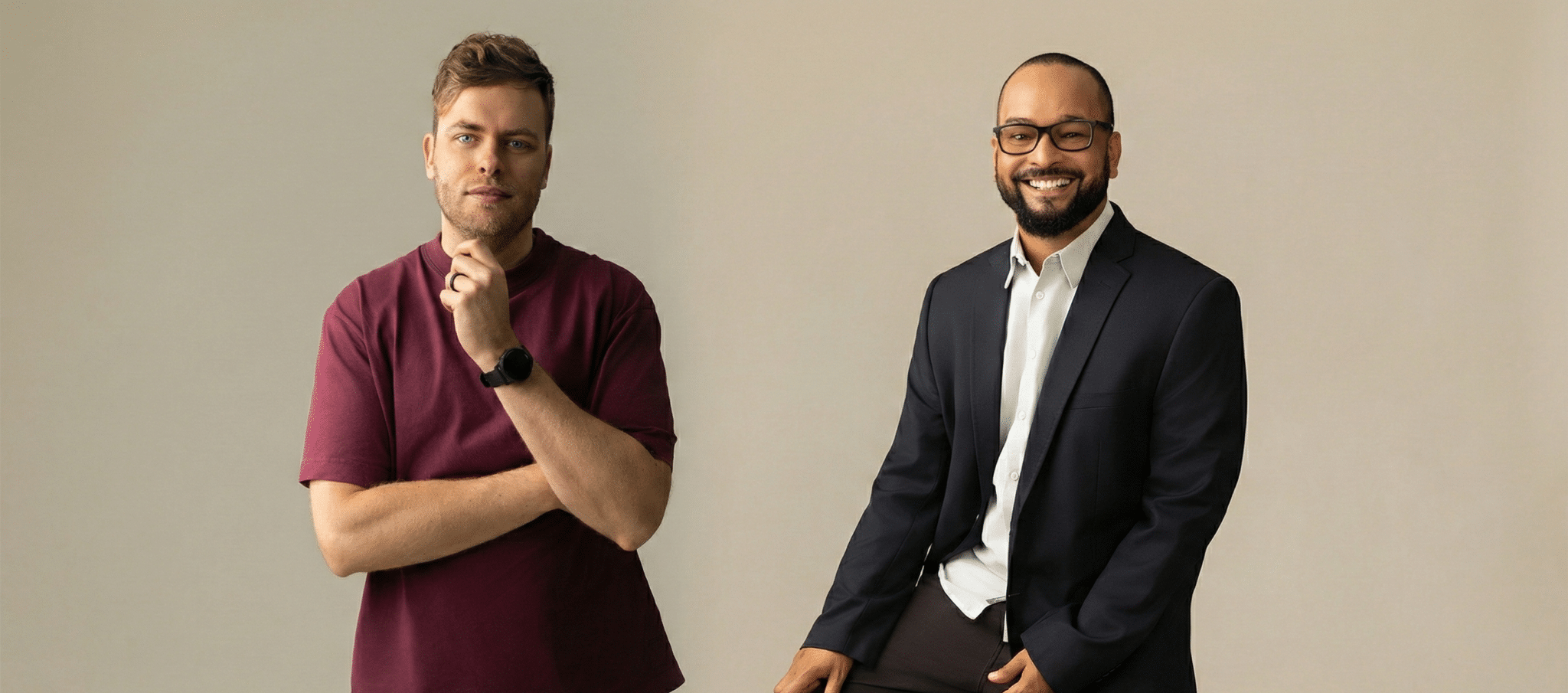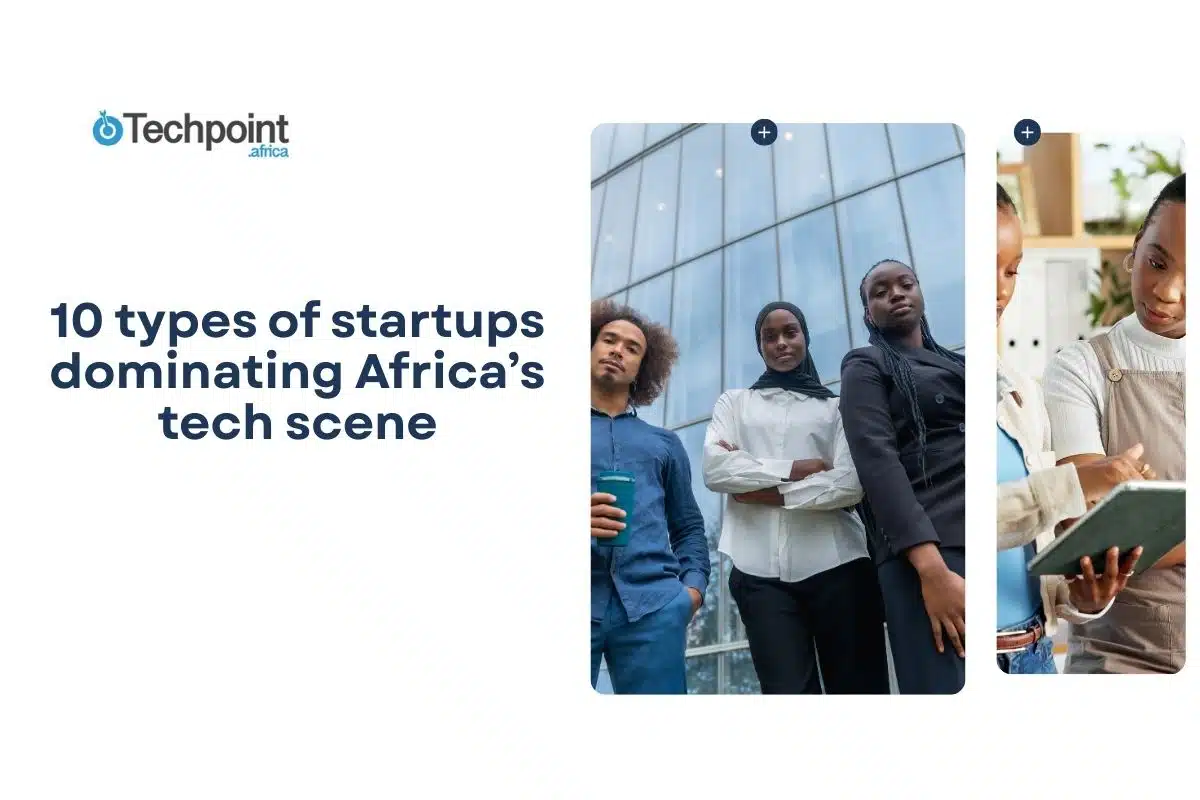In 2019, Ayodeji Audu planned to move out of Nigeria. Unsure if the process would be successful, he was hesitant to deplete his savings and instead approached a bank for a loan.
“I approached a bank for a loan and wanted to use my vehicle as collateral, but to my greatest surprise, the way the bank valued my vehicle was so ridiculous,” he told Techpoint Africa over a call.
That experience planted the seed for Reown, a startup aiming to build the largest vehicle history database in Africa.
Swapping overalls for the boardroom
After earning a bachelor’s degree in biochemistry from the University of Ilorin, Audu briefly worked in medical sales. The job helped him hone his sales skills, but he soon discovered that the market was not ready for some of the products he was selling.
Three years in, a friend approached him with a proposition to co-found a startup. The venture, Swipe, was a fintech company focused on providing businesses and individuals with credit cards.
“We started Swipe officially in 2020 during COVID, and the simple vision for Swipe was to create a credit card for every young adult with earning capacity in Nigeria.”
Swipe gave him his first taste of tech entrepreneurship, and for the next three years, he led marketing and product initiatives for the startup. During his tenure, Swipe acquired over 100,000 individual users and more than 1,000 businesses. It also raised $500,000 in pre-seed funding and secured partnerships with major financial institutions in Nigeria. By 2023, Audu exited the startup to focus on Reown with co-founders John Obi and Sesan Olaniyan.
Reown’s value proposition
Reown’s pitch is rooted in a belief that vehicle history data can unlock value across multiple sectors, including lending, insurance, ride-hailing, and vehicle rentals.
At launch, the startup attempted to collect this data from government sources and vehicle mechanics. But challenges soon emerged.

Victoria Fakiya – Senior Writer
Techpoint Digest
Make your startup impossible to overlook
Discover the proven system to pitch your startup to the media, and finally get noticed.
One major issue was the limited interaction between government agencies and vehicles entering Nigeria. Between the point of entry and registration, few touchpoints existed for collecting reliable data. As a workaround, Reown turned to vehicle mechanics without completely abandoning the government channels.
Mechanics, unlike the government, interact with vehicles frequently, as car owners often return multiple times for maintenance or repairs, but even that had its complications.
“When you hear mechanic, what comes to mind is the local guy in your neighbourhood. They operate in such an unstructured manner that makes it very difficult to get data from them, as it is already lost in the manual way they do things. However, we realised that some mechanics were structured and organised; they even used software from other countries.”
To solve this, Reown built a garage management software tailored to the nuances of the Nigerian market. Beyond improving operations for mechanics, the software served as a data collection tool.
It addressed two primary problems: operations and communication. Mechanics using the platform could log vehicle data, send invoices, schedule appointments, and receive service notifications. For customers, the software offered visibility into repair statuses, allowed communication with mechanics, and even enabled them to rate their service providers.
Still, this approach had limits: only vehicles serviced at garages using Reown were being tracked.
In 2023, the company ran a pilot with mechanics on Lagos Mainland and saw some traction. By year’s end, it attracted an acquisition offer from a foreign multinational with repair shops across several African countries.
The deal was for Reown to become the multinational’s official repair management software. It included capital and back-office support. But after months of negotiation, the deal fell through due to disagreements about the company’s future direction.
Having spent nearly eight months on the deal, Reown had burnt through its runway and had to lay off some employees. Still, it was beginning to notice another trend it could ride.
Betting its future on electric vehicles
One of the striking things about Audu is his clarity of thought around Reown’s long-term vision. On both occasions we spoke, he emphasised that Reown’s garage management software is just a means to an end.
While working toward that end, the startup is betting its immediate future on electric vehicles (EVs).
Although Nigeria is rarely featured in global EV conversations, local adoption is rising, driven by soaring petrol prices. According to climate advocacy group Climate Scorecard, there are now over 15,000 EVs in Nigeria, many of them two- or three-wheelers used by ride-hailing and delivery platforms like Glovo and Bolt.
It’s a similar story across Africa’s growing EV markets, where two- and three-wheelers are leading the adoption curve.
“We are witnessing the fresh start of the electric vehicle sector, so most of the vehicles that you see here are assembled locally. If we can get data from this first set of users, we can build something meaningful.”
Audu also notes that data collection is easier with EVs than petrol-powered cars, as they are more digitally connected. Reown has already modified its garage management software to accommodate electric vehicles. But the vision doesn’t stop there. Reown is also planning a vehicle financing scheme for gig workers, aimed at accelerating EV adoption.
The scheme will be managed through a mobile app that will also offer after-sales support, helping drivers to find nearby charging stations, locate qualified EV technicians, and access battery swap services.
It also sees long-term value in vehicle history data as a pricing benchmark in the used EV market.
Although the financing scheme is not yet live, Reown is actively seeking partners offering favourable interest rates. If that fails, Audu says the startup may pursue Islamic finance providers or any lender open to a revenue-sharing model over traditional interest rates.
Unlocking value with vehicle history data
Audu sees three major applications for the data Reown collects.
The first is asset-backed lending. According to him, a detailed log of a car’s repair history is essential for determining its true market value, especially in Nigeria’s used car market, where prices are often arbitrary and influenced by fluctuating exchange rates and seller profit margins.
Success, for Reown, means enabling data-backed pricing that financial institutions can trust.
The second use case he sees is car insurance. Of the over 12 million vehicles on Nigerian roads, less than 3.5 million are insured. Reasons range from the cost of premiums to distrust of insurance companies and cultural resistance to the idea of insurance.
Despite increased interest from insurtech startups, Audu believes Reown can reduce the cost barrier with better data.
“There’s the issue where I’m a good driver, and I rarely get involved in a car crash. But an insurance company is coming to sell to me to insure my vehicle against a car crash. I’m careful enough; I don’t need your product, and I’m covered by the blood of Jesus. But if you’re telling that customer that they won’t pay the regular price as other people because of their vehicle history, then it can become an interesting conversation.”
The third angle and perhaps its biggest play is data monetisation. Reown plans to serve this data via an API to lenders, insurers, used car marketplaces, and any business that can benefit.
“We understand it’s a long-term journey, and it’s the reason we’re getting into vehicle financing so we don’t die before we get there.”
One of the startup’s biggest hurdles has been Nigeria’s heavy reliance on used cars, popularly known as Tokunboh vehicles. These vehicles often enter the country 10 to 20 years after manufacture, making reliable data scarce.
What the future holds
Reown is still pre-revenue, Audu says, and is focused on rebuilding from the failed acquisition. In the meantime, it’s doubling down on product development.
A previous beta test with 37 garages showed promise, with some garages even paying to use the platform. However, the startup still struggles to deliver the full feature set many of its customers need.
That hasn’t stopped Audu from dreaming. Before the acquisition talks, Reown hired a Ghanaian employee who joined because the startup solved a problem he personally experienced — proof, Audu believes, that Reown can resonate across Africa.
The failed acquisition also reinforced the belief that Reown’s product could be adopted in multiple African countries that face similar issues around lending and insurance, like Nigeria.











